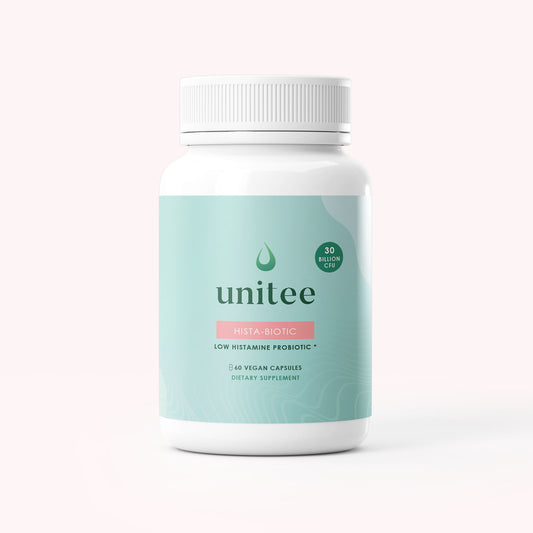You know those people who just seem to be so darn happy all the time?
Like, no matter what life throws at them, or how boring and average the day is, they always seem to be smiling while you’re busy complaining about how Whole Foods ran out of your favourite gluten free bread.
Don’t worry, as always, you’ve got a scientist on your side and today I’m going to teach you how to be a little less crabby and a little more happy.
Let’s get started!
Why Are Some People So Positive?
I’m not going to tell you that some people just naturally look at the world as a more positive place – and you should be happy about that. It takes work to see the world as a positive place, but with a little science and effort, you can be one of those positive people too.
You see, your brain contains neural connections which make associations about the world, help you to learn new things, and help to develop your way of thinking. These neural connections are strengthened depending on how much you use them.
Think of it like exercise – the more you use these connections, the stronger they get. The less you use them, the weaker they become.
This is why, for example, people who become experts in their field – let’s say math - appear so natural when they face a new math problem. They may have never seen that problem or situation before, but their brain has been trained to easily understand and deal with numbers and math-related problems.
Well, believe it or not, it works the same with happiness. The more you practice seeing positivity in situations, the stronger these positive neural connections become, and the more natural you become at finding positivity in new situations.
In other words, you are actually able to rewire your brain to approach life more positively.
Why Is it So Hard to be Positive?
Something that I once learned, which was quite eye-opening, was that people tend not to be afraid to say negative things, however people are often resilient to saying positive things.
As an example, you can consider how much more common it is to hear people talking negatively behind others’ backs, rather than positively.
We live in a society of complainers. And, believe it or not, people actually do bond over complaining. It’s easy to get sucked into this – but today, let’s talk about breaking that cycle and not only appearing more positive to others, but increasing positive thinking for yourself as well.
The Science Behind Increasing Positive Thinking
It may sound unbelievable, but simply reacting to situations in a more positive way is going to stimulate and strengthen neural connections associated with positivity. This means looking for good in situations – which, may at first seem forced, but eventually becomes more and more of a natural reaction.
At first, this process can be quite difficult. For someone who is used to reacting negatively, victimizing themselves or simply looking to complaining as a bonding mechanism – well, suddenly thinking about and stating anything positive that can be found in the situation is quite a transition.
Again, it definitely can feel forced and unnatural. But, I promise, you are training your brain to automatically react in a more positive way.
An Exercise to Increase Positive Thinking
If you really are committed to increasing your positive image and outlook, then I’ve got an exercise for you.
This may sound a bit odd, and is definitely easier said than done, but you can simply tell people positive things – regularly.
For example, if you have a colleague you love working with, tell them how much you like working with them and why. Or, if someone was particularly helpful on a customer service call, tell them how good they were and even tell them you want to leave feedback because they deserve it.
I can tell you that the reaction from these people is often a bit odd – they tend to be quite shy, as being so overly open about positivity. But, I can also tell you that even if they act a bit strange about it, deep down, everybody loves getting a compliment. And, this will both allow you to reinforce your own positive neural connections and appear more positive to the outside world.
In fact, by presenting yourself as a more positive person, complainers tend to avoid complaining to you so much – which ends up further encouraging the release of negativity in your brain wiring, and the reinforcement of positive neural connections. So there you have it, your daily dose of positivity! Simple, but very effective.
Try it out and let me know how it goes in the comments below!
PS. If you’re really looking to boost your positivity, believe it or not, one of the most effective ways is through enhancing gut health. Learn about the connection between gut health and mood, along with at-home interventions to improve mood naturally, by clicking here.
Your friendly neighborhood scientist,
Anita Tee, MSc, BSc

Anita Tee
My name is Anita Tee. I'm a nutritional scientist who specializes in histamine intolerance. I hold a Master of Science in Personalized Nutrition and a Bachelor of Science in Human Biology and Psychology.For the past ten years, I have used my experience in nutritional and medical health sciences to create a scientifically backed, natural approach to healthcare that relies 100% on evidence-based research.As I previously suffered from - and overcame - histamine intolerance, my focus is to increase recognition and expand the available resources and protocols available for resolving this particular disorder. To date, I have helped over 4,000 individuals fully resolve or better manage their histamine intolerance symptoms.







